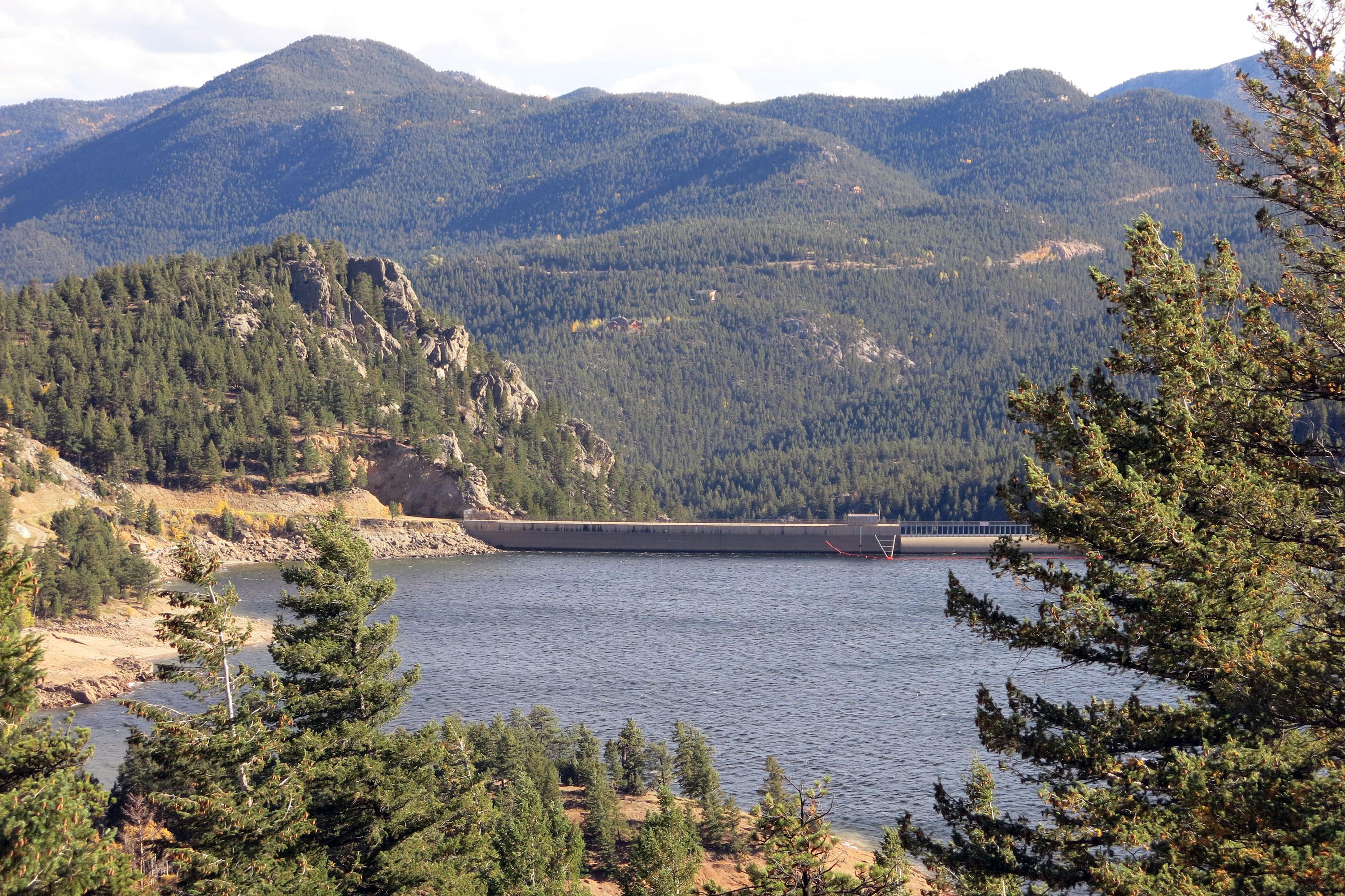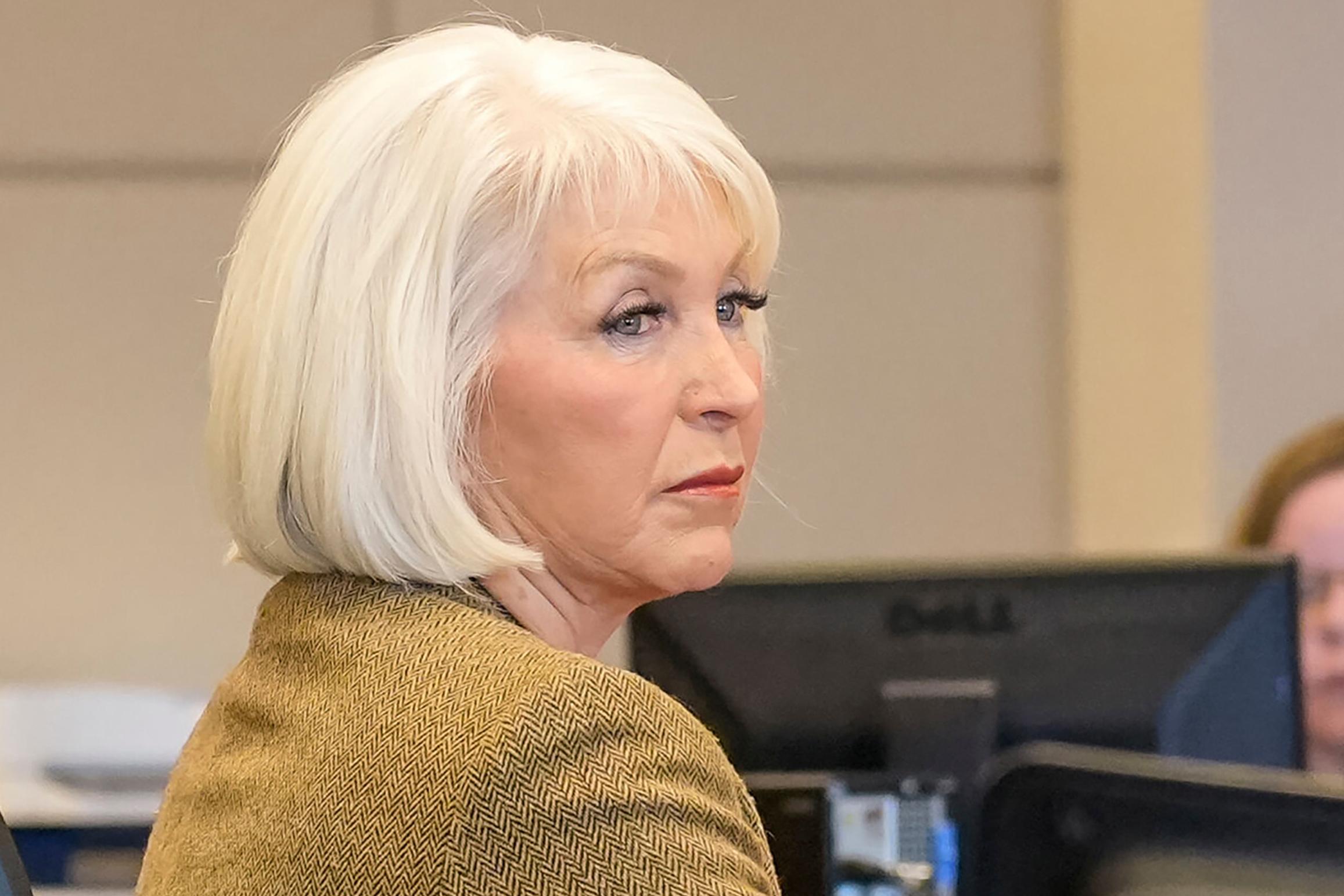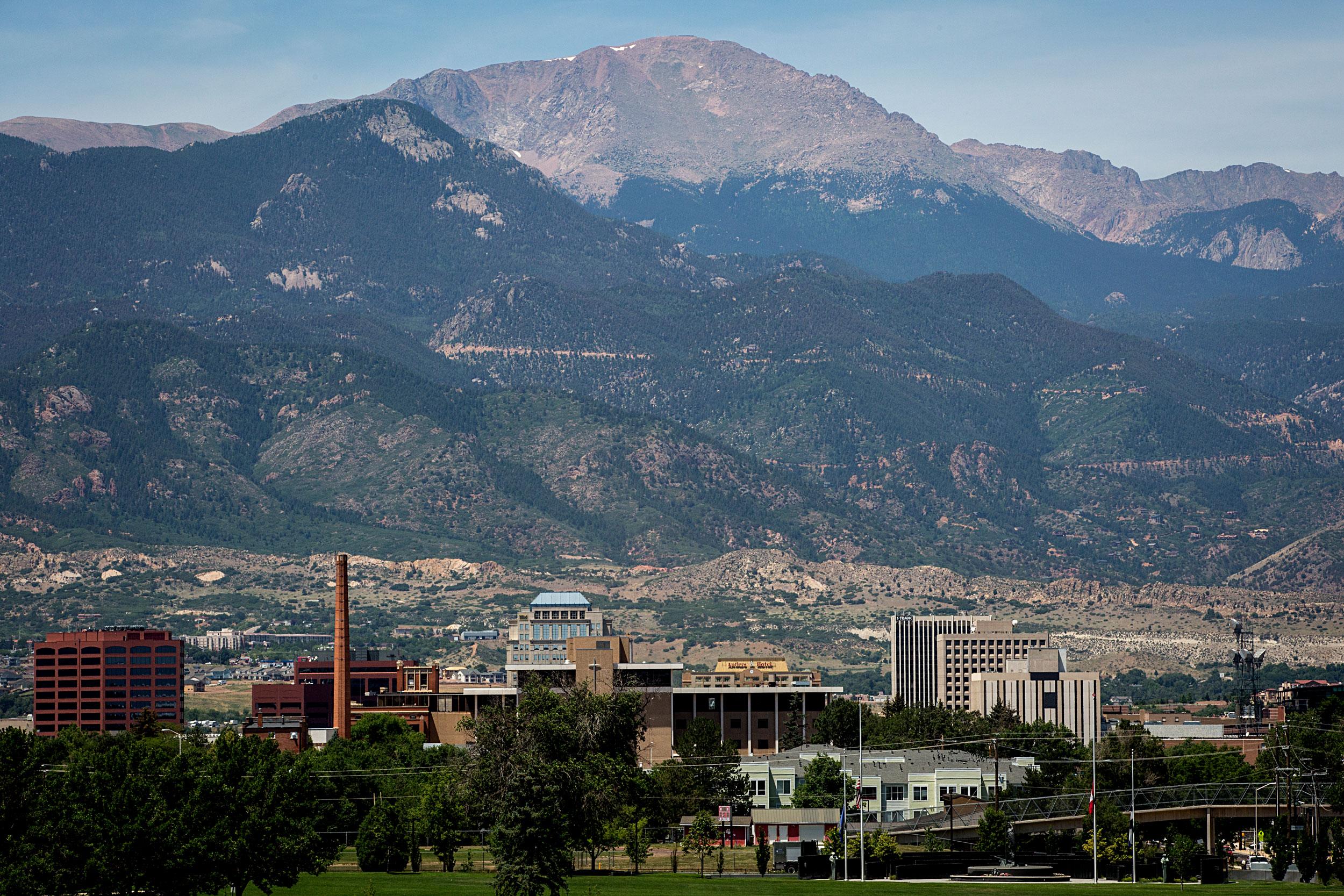
The fight over expanding Gross Reservoir in Boulder County continues, despite the project’s recent approval from federal officials.
Gross Reservoir helps Denver Water serve 1.5 million Front Range customers. The utility began the permitting process for the expansion 17 years ago. Earlier this month, the Federal Energy Regulatory Commission ordered Denver Water to proceed, granting an amendment to its hydropower license.
“Denver Water is expressing to the public that this is over, but it’s a long way from over,” said Gary Wockner, executive director of the nonprofit Save the Colorado. “Our organizations, including the neighbors around the dam, are heavily invested and going to see the fight all the way through.”
Save the Colorado is one of a handful of groups that sued three U.S. government agencies in 2018 to try to stop the expansion, including the U.S. Army Corps of Engineers, which has granted a permit. The groups argue that the project would hinder streamflows as well as harm aquatic life and wildlife.
“It further drains and destroys the upper Colorado River and especially the Fraser River in Grand County,” Wockner said. “On this side of the (Continental) Divide, it’d be the biggest construction project in Boulder County history. And it would have extraordinarily negative impacts for all the people who live around the dam.”
Wockner points to examples like trees that will have to be cut down and traffic congestion in the surrounding areas during construction.
The expansion is supposed to raise the height of the reservoir’s existing dam by 131 feet to increase the reservoir’s capacity by 77,000 acre-feet. According to Denver Water, the work is necessary to help meet future demand for drinking water. The utility has also said it will only take extra water from tributaries during wet years, avoiding periods of drought.
“We are committed to working closely with the Boulder County community to ensure safety, be considerate neighbors and retain open, two-way communication channels during this construction project,” Jeff Martin, program manager for the Gross Reservoir Expansion Project, said in a recent statement.
At the same time, Denver Water has its own case with Boulder County, which initially denied the utility’s request to be exempt from a local review of its plan. A Boulder district judge ruled in December that Denver Water must go through the county’s review process. Denver Water has appealed that decision through the Colorado Court of Appeals and must file an opening brief by Aug. 4.
This means that ultimately county officials could have a say over approval of the expansion. Boulder County Deputy Attorney David Hughes said they have that power thanks to a series of Colorado statutes referred to as 1041 Regulations.
“It basically empowers governments to review projects within their jurisdictions, even if they’re being proposed by another government,” he said. “Obviously this is going to be likely the largest development project ever in unincorporated Boulder County, and local officials should have the ability to review projects within their own jurisdictions.”
Boulder County could also request another hearing from the Federal Energy Regulatory Commission. But Hughes declined to say whether his office will do so.
After receiving that federal approval, Denver Water said it plans to finish the design phase of the expansion next year, followed by four years of construction.
“The FERC order is an important advance for the project,” a Denver Water spokesman said in an email to CPR News. “From here, related to legal matters, we’ll need to take some time to evaluate our options and the appropriate next steps.”









